Leningrad, summer 1968. Volodya is 15-year-old. With his mates, he goes to the cinema to catch The Shield and the Sword, the new movie everyone in the USSR is buzzing about. It’s a big-budget production about a Soviet spy who infiltrates the Nazis during World War II. Volodya is blown away.
‘I am going to be a spy,’ he decides right there and then. He’s so determined he pays a visit to the KGB headquarters in Leningrad, a bleak office building known to everyone in town as the Big House. He walks up to an officer on duty and says, ‘I want to get a job with you.’
‘That’s terrific, but there are several problems,’ replies the officer. ‘First, we don’t take people who come to us on their own initiative. Second, you can come to us only after the army or after some type of civilian higher education.’
Volodya doesn’t miss a beat. ‘What kind of higher education?’
‘Any!’
‘But what kind is preferred?’
‘Law school.’
Two years later, in 1970, Volodya enrols at the Leningrad Law Faculty. And, in 1975, he finally fulfils the dream he had when he watched The Shield and the Sword. He lands a job as a Junior Lieutenant in the KGB.
Volodya is the nickname his parents gave him. Today, the world knows him as Vladimir Putin.
It sounds far-fetched, yet a spy movie really did set Putin on the path to the KGB, which in turn enabled him to accrue the necessary contacts and experience to succeed in Russian politics after the fall of communism in 1991. We all know what has happened since… In other words, a film indirectly changed the course of history.
Putin has been vocal about the impact The Shield and the Sword had on him as a teenager. ‘Spy movies like The Shield and the Sword,’ he told Russian journalists, ‘took hold of my imagination.’ After watching it, he revealed, ‘I had made my choice. I wanted to be a spy.’
Prior to that turning point, Putin was ‘hell-bent’ on becoming an airline pilot. But, after The Shield and the Sword, it sounded boring. ‘What amazed me most of all was how one man’s efforts could achieve what whole armies could not,’ Putin explained. ‘One spy could decide the fate of thousands.’
You can watch The Shield and the Sword on YouTube. But it will test your resolve: The film is nearly six hours and made up of four instalments.
It’s based on a 1965 novel by Vadim Kozhevnikov, the Soviet Ian Fleming. But the hero of The Shield and the Sword, Major Belov, is no 007. He’s analytical and chaste: in true Soviet fashion, his only focus is the mission. Set during World War II, the story follows Belov as he goes undercover in the SS and steals secrets which help the USSR win the war.
The film isn’t as cheesy as it sounds. While it might not make you quit your job to join the Russian secret service, it’s easy to see why young Putin was so enamoured with it. It’s a popcorn movie, Soviet-style, filled with cliffhangers.
Historians Elena Prokhorova and Alexander Prokhorov, experts on Soviet culture, tell me the 1968 movie adaptation of The Shield and the Sword was part of a ‘PR campaign’ by the KGB. The driving force behind it was KGB chairman Yuri Andropov, who would go on to lead the USSR in the early ’80s.
Andropov had taken the helm of the security agency a year earlier, in 1967, at the tail end of a period of liberalisation which had seen the KGB’s influence diminish. Its reputation had also suffered due to revelations about its role in the Stalinist repression. But under Andropov, says Prokhorov, ‘there was a renewed effort to improve the image of the security service to make the police state more powerful.’ The Shield and the Sword, adds Prokhorova, was ‘an anniversary film to celebrate 50 years of the KGB.’
It worked: the movie was a box-office smash and inspired more blockbusters extolling the KGB which, says Prokhorova, ‘were all following the same blueprint.’ The most iconic was the TV series Seventeen Moments of Spring, also about a Soviet spy in Nazi Germany, which came out when Putin was in law school.
In Oliver Stone’s The Putin Interviews, the Russian president spoke of those programmes with a rare twinkle in his eye. As he previously admitted, ‘my notion of the KGB came from romantic spy stories. I was a pure and utterly successful product of Soviet patriotic education.’
Putin knows the patriotic theme tune of The Shield and the Sword, ‘Where Does the Motherland Begin?’, by heart. In 2010, he sang it during a meeting with spies who had been deported from the US. And in 2011, he performed it on the piano in a Moscow theatre. According to Prokhorova, the song ‘was played everywhere’ in the Soviet Union.
A new rendition was recorded in 2022 by the Alexandrov Ensemble of the Russian military. Moreover, says Prokhorov, The Shield and the Sword was digitally remastered last year by Russia’s major studio, Mosfilm, which is headed by Karen Shakhnazarov, a Putin supporter.
It’s not surprising that the movie is experiencing a revival in Russia. It might have been made in another era, but its message of devotion to the motherland aligns with the Kremlin’s rhetoric.
Let’s not forget either that The Shield and the Sword is set during World War II. Ever since he sent troops into Ukraine a year ago, Putin has been comparing the invasion to the Great Patriotic War as Russians call it. That’s also why the film is getting ‘recycled,’ says Prokhorov. ‘It’s part of the information warfare.’
In this war, Putin has cast himself in the role of his teenage idol, Major Belov. It’s striking how much he has moulded his image after the fictional spy. Like Belov, he wants to appear enigmatic and undaunted.
In The Putin Interviews, Stone asked the Russian leader about assassination attempts on his life. Putin’s cryptic reply sounds like it could be a line from The Shield and the Sword: ‘Do you know what they say among the Russian people? They say that those who are destined to be hanged are not going to drown.’
Got something to add? Join the discussion and comment below.
Get 10 issues for just $10
Subscribe to The Spectator Australia today for the next 10 magazine issues, plus full online access, for just $10.

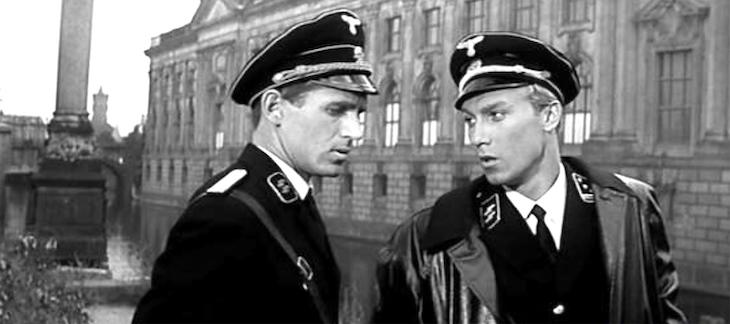
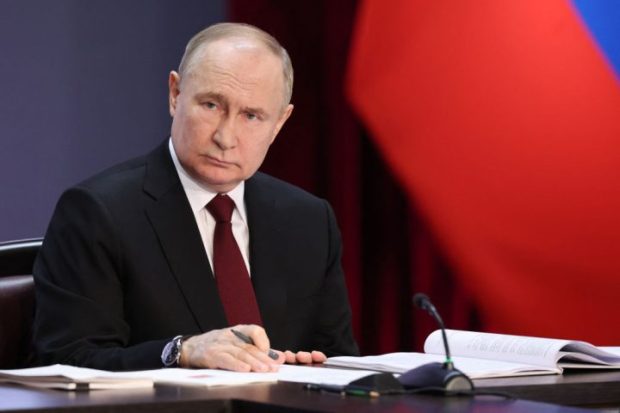
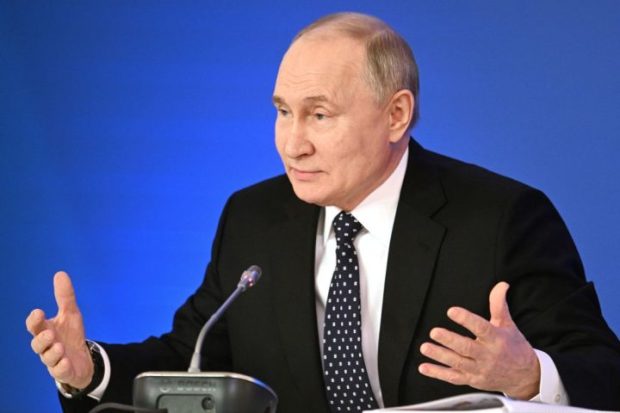

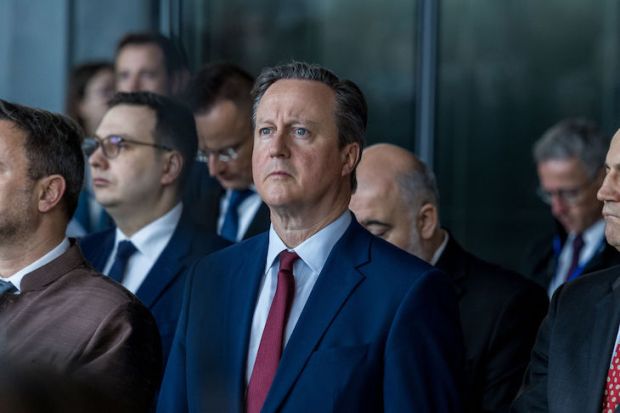
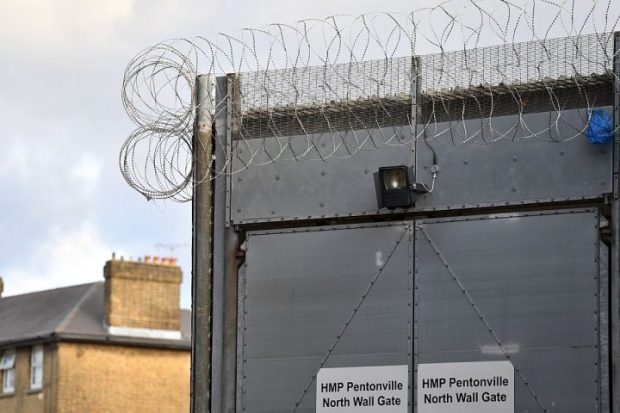
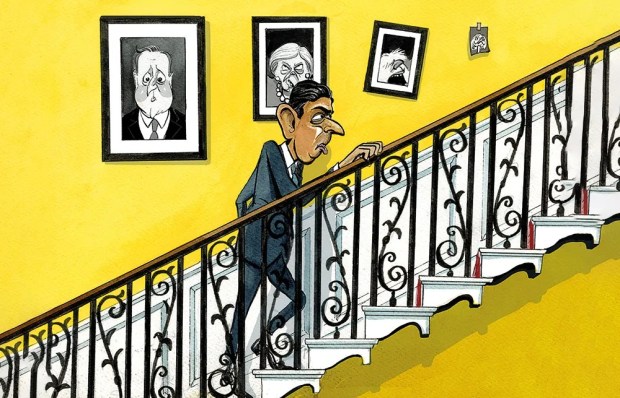












Comments
Don't miss out
Join the conversation with other Spectator Australia readers. Subscribe to leave a comment.
SUBSCRIBEAlready a subscriber? Log in